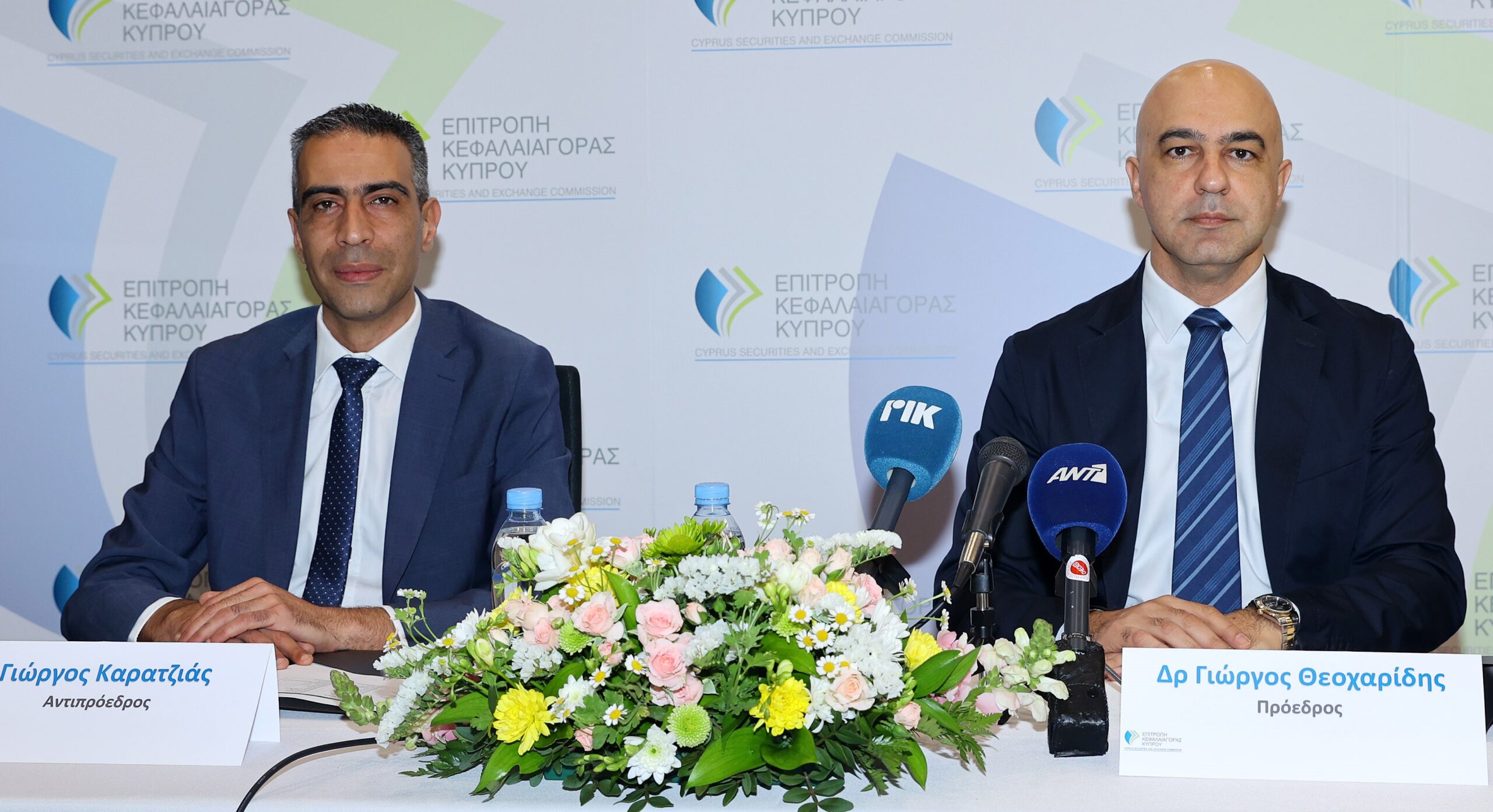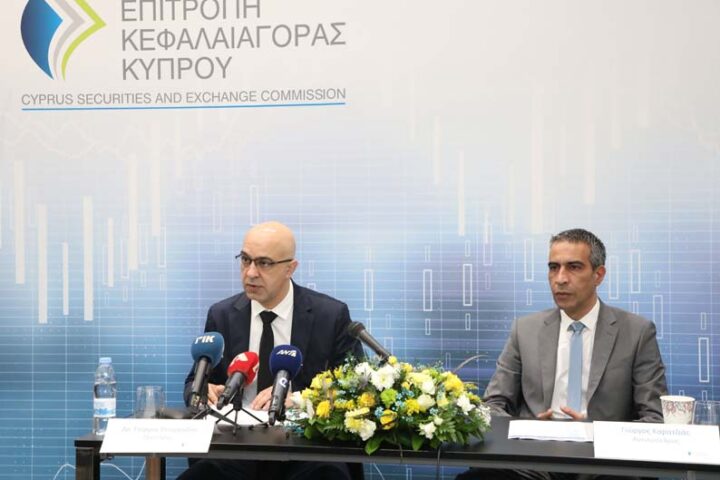The new European framework for crypto asset companies should pass in May, with the bigger players expected to welcome this change, the Cyprus financial markets regulator said on Wednesday.
George Theocharides, head of the Cyprus Securities and Exchange Commission (CySEC), said that “large crypto asset companies know very well that only through regulation will they be able to survive.”
Dr Theocharides said the Markets in Crypto-Assets Regulation (MiCA) should be implemented into national law by the EU member states about 12 to 18 months after the regulation is introduced.
He said that Cyprus has already licensed seven crypto asset companies and withdrawn the license of another in 2022.
Theocharides said the number of supervised entities had risen to 837, up from 806 in 2021, an increase of 3.9%, while approximately 100 new applications are under review pending licensing.
This represents an increase of 12% compared to 2019, before the pandemic outbreak.
CySEC supervises 248 Cyprus Investment Firms (CIFs) with assets of more than €5.2 bln and 140 administrative service providers.
The sector employs 19,000 people and is a major contributor to the Cyprus economy through direct taxes and fines, indirect revenues and investments in the wider society (rents, audit and legal services, consumer goods and services).
Theocharides said that CySEC’s supervisory role is expanding into two new sectors – European Crowdfunding Service Providers and Pan-European Personal Pension Products (PEPP) providers.
Already, one CIF is regulated for its crowdfunding activities.
In his annual review of CySEC’s activities, Theocharides said the Supervision Department carried out 359 remote, thematic and on-site inspections of CIFs, and monitored the implementation of requirements for reporting transactions and derivatives contracts.
During 2022, the Department continued to monitor the online marketing practices of CIFs.
It concluded the evaluation of advertising material of more than ten CIFs, and potential violations were identified from the findings.
The Anti-Money Laundering/Combating the Financing of Terrorism (AML/CFT) Department completed on-site inspections of 14 supervised entities and is in the process of a further 15 inspections, for which possible violations of existing legislation may be identified.
The Department of Market Surveillance and Investigations conducted 15 raids, completed 39 investigations, and had 48 further investigations in progress by the end of 2022.
Sanctions
Following Russia’s invasion of Ukraine and the EU sanctions, some €1.44 bln in assets were frozen.
CySEC imposed administrative fines of €2.9 mln, of which the majority related to fines and settlements for CIFs, while over the past decade, it imposed fines and settlements of €34.2 mln, which ended back in state coffers.
Theocharides said that CySEC currently employs 153 people, and this number is expected to rise to about 200 by the end of the year, with the immediate employment of about 50 people in admin, IT and supervisory roles.
For 2023, the regulator’s budget of about €13 mln has a small surplus and should be balanced in 2024-2025.
Due to its increasing role and responsibilities, CySEC is also reviewing its fee structure which is expected to increase to have a steady revenue flow and become less dependent on the state.
To comply with ESMA’s recommendations, CySEC is in consultations with the European regulatory body to increase its workforce to supervise investment funds better and review its updated supervisory ad implementation plan.
A control and management system for licensing applications is being introduced so that all applications are submitted electronically, as well as any changes, such as the members of their board.
The development of an online portal for the registration and examination process for obtaining certification offered by CySEC is also underway.
Regarding preventive supervision, in 2022, new upgrades were made to the Risk-Based Supervision Framework (RBS-F) system to consider all the developments and changes that may pose risks to the market.
Also, as part of the expansion of RBS-F with the integration of risk indicators regarding sustainable investments (ESG factors and climate-related risks), a request has been submitted to the EU Directorate-General for Structural Reform Support (DG Reform) in the provision of technical assistance programme for 2023 (TSI 2023).
Completing the Enterprise Risk Management Framework (ERM-F), which started in 2020, is also expected during 2023.










